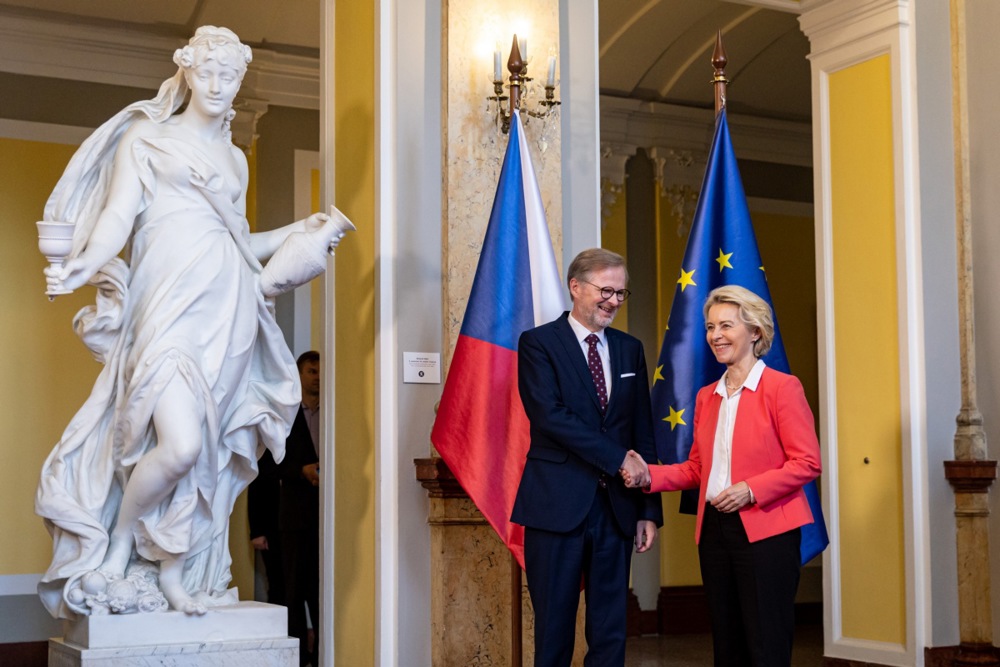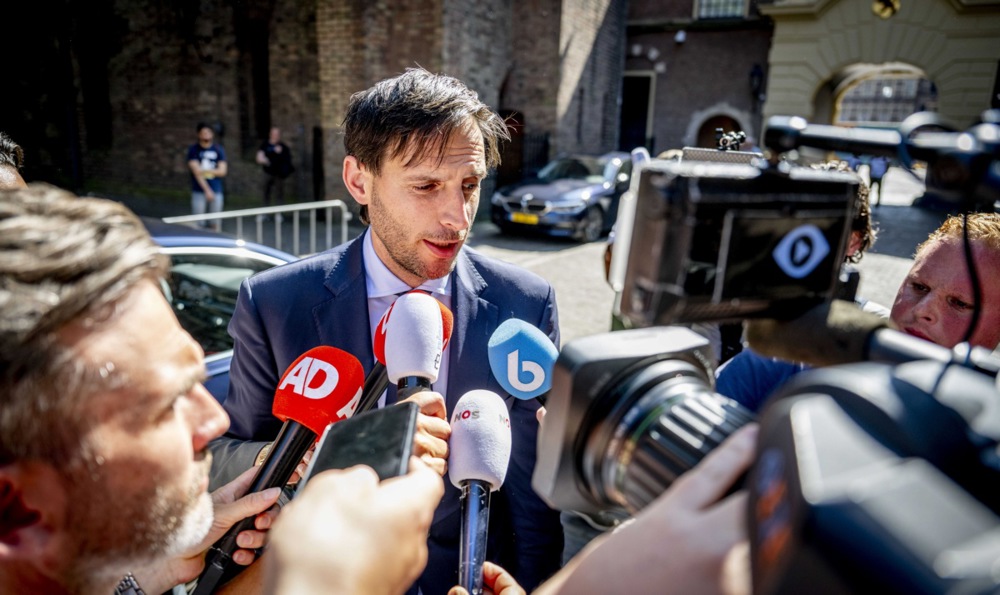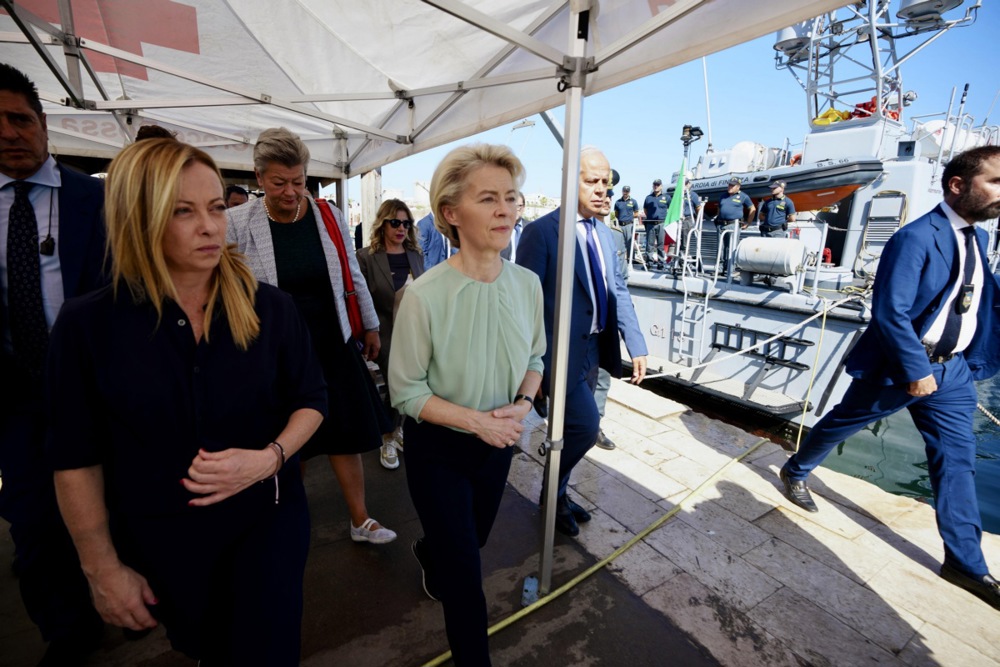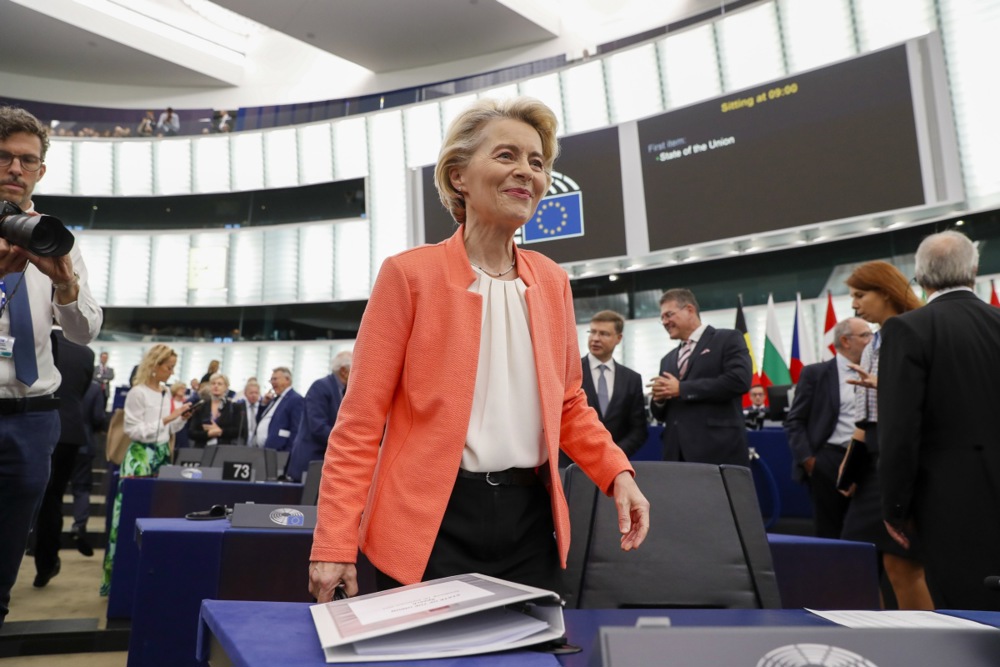Charles Michel has hit out at European Commission President Ursula von der Leyen for publishing “disastrous” Russian sanctions legislation.
In an interview with the German magazine Der Spiegel, Michel, President of the European Council, said his services had to completely re-write the draft Commission law to prevent it damaging countries across Europe.
The high-ranking European Union leaders have a notoriously bad relationship and try to present themselves in the best light possible while putting the other down.
Michel did not hold back in highlighting what he considered were von der Leyen’s recent mistakes in international politics.
“Most of the time, the division of labour between us works well,” he told the magazine. “The European Council decides on the strategic direction, the Commission takes care of the implementation – but unfortunately, that’s where things sometimes get stuck.”
Michel said there were several examples of that,”but I remember one particularly well”. He brought up how the EC had said it would target natural gas and petroleum products from Russia, adding that it shot itself in the foot with that announcement.
“For some Member States, it would have been a disaster to follow this overnight and without immediately available alternatives.” Michel claimed that the European Council then had to step in after the “mistakes” by the EC.
“We then spent hours trying to improve the Commission’s proposal, even though that is not the job of heads of state and government. But we had to reach a consensus.”
He said another gaffe occurred when von der Leyen announced the migration agreement with Tunisia together with Dutch Prime Minister Mark Rutte and Italian leader Giorgia Meloni. The Council was not involved, he said, and numerous Member States were outraged, condemning the move as an unacceptable violation of the rules.
Michel fully agreed with those Member States. “The EU is based on treaties and it would be wise to stick to them. This is the only way to ensure that we also have a clear mandate – and that those involved should decide in the end, namely the Member States.
“This applies not only to the agreement with Tunisia but also to all other future agreements of this kind,” he said.
“It is not for nothing that the European Court of Justice has repeatedly stated what the division of labour in the EU looks like. Migration requires a holistic, common approach that includes viable legal channels.
“We have to manage it together and find the right balance between solidarity and opportunity,” Michel added.
He said the Council should be involved in such decision-making “so that the member countries can ensure the right balance between our values and our interests”.
The deal with Tunisia has taken fire from all sides, with MEPs from all groups and even the EU watchdog questioning the agreement over the country’s respect for human rights.
Michel said others had concerns about the Tunisia deal. “The United Nations has written two letters to the … Commission and the EU External Action Service.
“In them, Volker Türk, UN High Commissioner for Human Rights, criticises, in part sharply, the fact that the agreement contains practically no provisions to protect the rights of migrants and refugees.
“The President of the African Union Commission has also made it very clear to us that the AU does not appreciate the way we are working with Tunisia,” he added.
“We have to take something like that into account, even if the Tunisia Agreement was certainly well-intentioned.”
The Der Spiegel interview is yet another phase in the long-running feud between the Belgian and German EU leaders. The latter seem to have better relationships in European circles and the media but Michel is keen to push back.
The hostilities have led to both parties trying to avoid each other in public and some embarrassing incidents. One such was Sofagate, where Michel took a seat next to Turkish President Recep Erdoğan and von der Leyen was forced to make do on a sofa, thus appearing less important. She later described the move as “sexist”.
In 2022 a similar incident took place during the summit with the European Union and the African Union.
Ugandan Foreign Minister Abubakhar Jeje Odongo appeared to ignore EU Commission President Ursula von der Leyen at an official reception in Brussels pic.twitter.com/vMP0iAwtW2
— Reuters (@Reuters) February 19, 2022
At international summits such as the G7 and G20 meetings, both also make efforts to sabotage each other by, for example, denying the each other time to speak. There was even infighting between them on who had the lead on the Brexit talks
Besides these incidents, communications between Council and Commission staff are also said to be poor. They are reluctant to share information, something made worse by von der Leyen’s perceived tendency to micro-manage.





